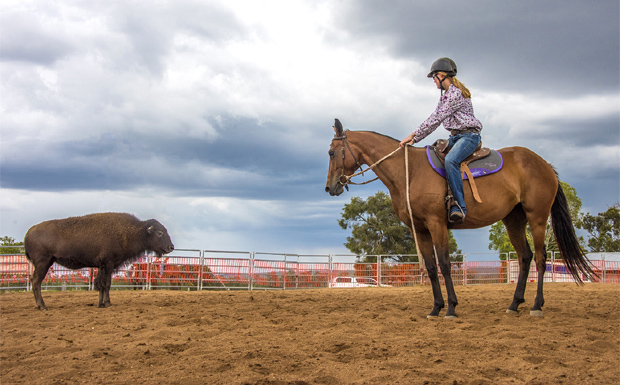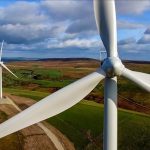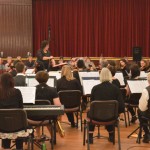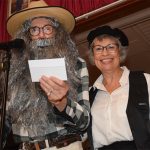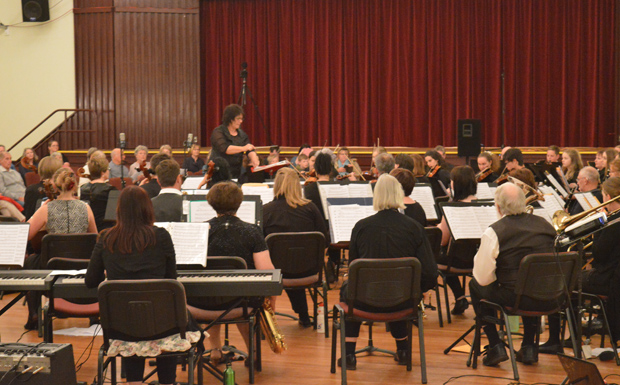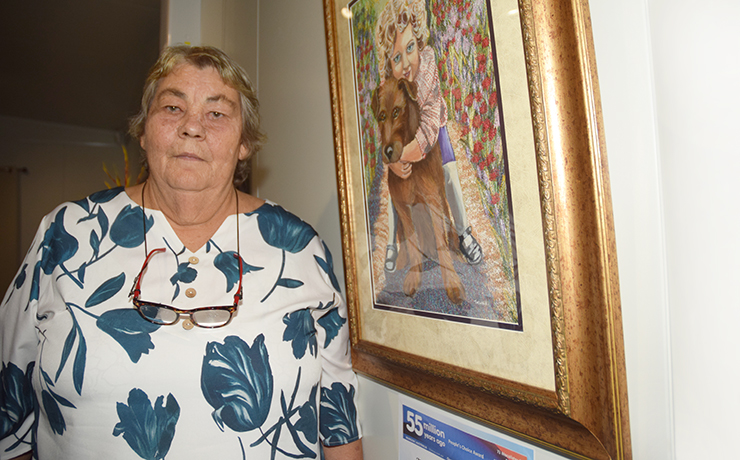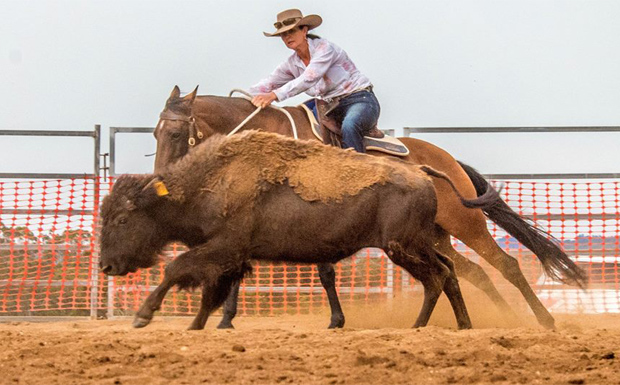
January 23, 2017
South Burnett campdrafters and equestrians have found a better way to train their horses, thanks to an enterprising Kingaroy couple who’ve built up a herd of 40 North American bison on their property over the past three years.
Campdrafters Nick Stark and Janine Ploetz run Starelle Stockhorses at Weens Road in Kingaroy.
They decided to expand into bison three years ago after hearing great things about the animals from other campdrafters, and purchased their first bull and cow from an interstate breeder.
The couple quickly fell in love with the animals, and soon set up a second business: Jemima Bison.
Now – roughly once a month – they run campdraft training days at an arena on their property for horse owners who want to train their animals quickly and without the risks that come from working with cattle.
“Bison are very intelligent, and they’re much better to train horses with than cattle,” Janine said.
“They’re essentially flight animals … so if you move slow, they’ll move slow.
“They don’t go sour (ie get exhausted quickly) like cattle do, and they’ll never put you in a dangerous situation.”
Janine said bison first began being imported into Australia about 25 years ago, and many top horse trainers now have one or two on their properties.
She believes a lot of the best campdrafters in Australia also have a few bison of their own, too, even though the animals are not recognised by the Australian Campdrafting Association and there are no official bison drafts.
And as far as she’s aware, Jemima Bison has the largest breeding and training herd in the State.
“Bison are extremely intelligent animals, and if your horse isn’t in the right position they’ll beat you,” Janine said.
“But because you can take them slowly if you want, this makes them particularly good for training young horses.”
“They’re also very curious animals and have a really good disposition. And all of them have their own personalities.”
Unlike cattle – who bellow – bison grunt.
They’re also capable of moving extremely fast, and they have greater lung capacity than cattle which gives them much more endurance.
Bison are also very long-lived: an average animal can breed for up to 20 years.
Janine said although the animals are native to the North American plains where it can snow in the winter, they appear to have had no problems adjusting to the Australian climate.
She’s heard of properties as far as North Queensland running bison, and she and Nick have seen the animals flourish on their own property.
“We’ve never had any veterinary concerns with them,” Janine said.
“And we have two sires now, so the genetics are good.”
At the training days, many different types of riders attend including team penners, endurance riders, show jumpers and horse trainers, as well as campdrafters.
“We encourage riders to bring along several horses – if they have them – so they can spread the training amongst all their animals,” Janine said.
“We run group sessions as well as one-on-one sessions, and at our last training day about 60 per cent of the people there had been to a previous one of ours. So riders find them very good value. We even have some people who travel from five hours away to take part.”
Jemima Bison’s next training day will be held on Friday and Saturday, February 3-4.
Interested riders can find out more details and/or book a spot by phoning Janine on 0408-226-822, or can message her through Jemima Bison’s Facebook page
[Photos: Denise Keelan Photography]
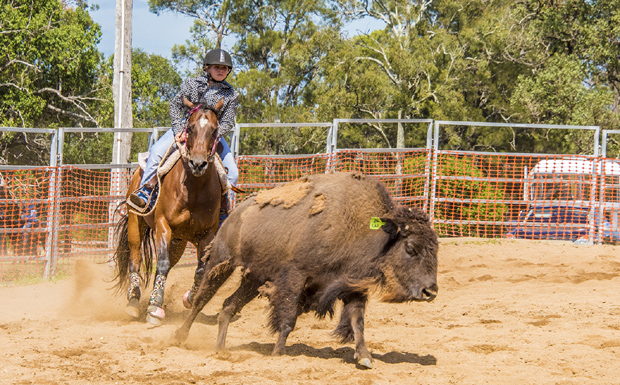
 |
 |
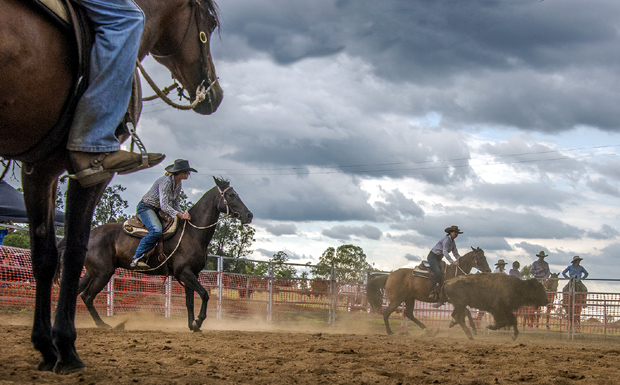
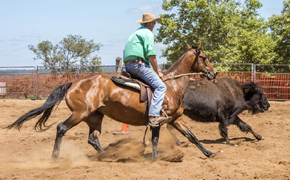 |
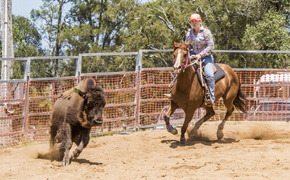 |
